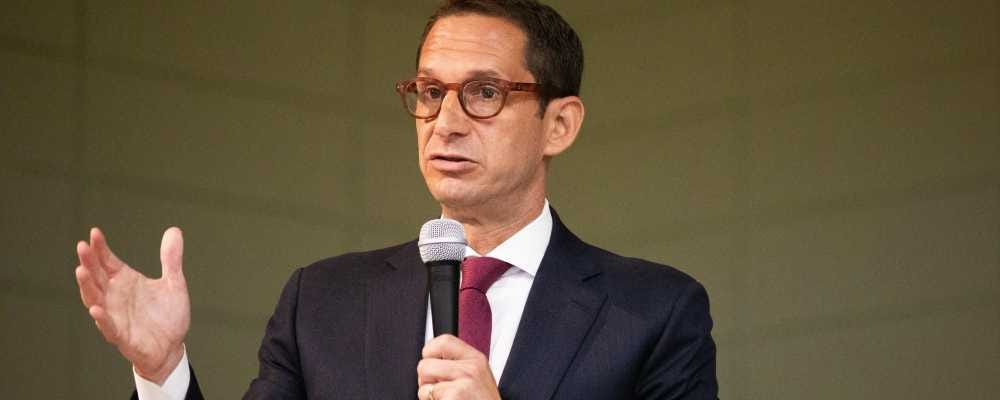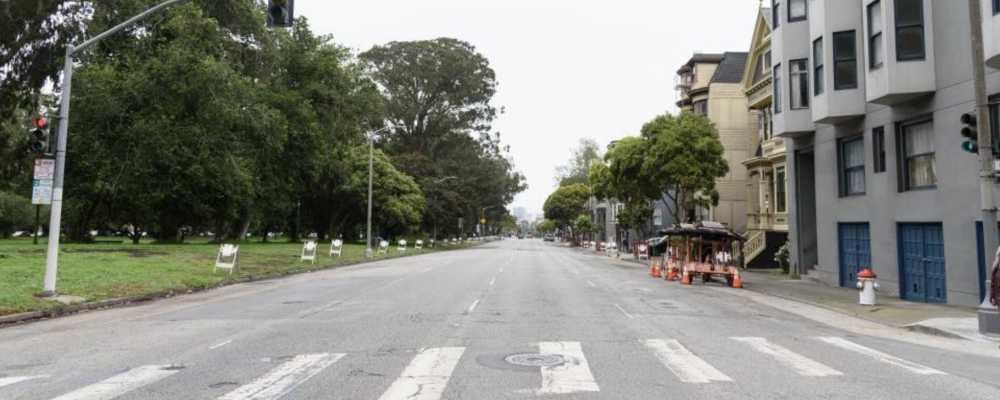The GrowSF Report: Nine teams for street crises, zero coordination. Not anymore.
PLUS: Supervisors reject Cynthia Dai from Sunshine Ordinance Task Force
What You Need To Know
Here’s what happened around the city for the week of March 23, 2025:
- Nine teams for street crises, zero coordination. Not anymore.
- Supervisors reject Cynthia Dai from Sunshine Ordinance Task Force
- Wiener and Arreguín introduce SB63 for regional transit funding
- Another misuse of power in SF
- After reinstating Kevin Ortiz, SF’s Latinx Democratic Club exits the SF Democratic Party
- Street safety improvements coming to Oak
Recent & upcoming openings:
- Union Square gets a pastry upgrade with B. Patisserie
We’re trying something new - what do you think?
This week’s newsletter looks a bit different. Let us know if you like it!
Just reply to this email or send one to contact@growsf.org to give feedback.
Nine teams for street crises, zero coordination. Not anymore.
Nine teams, zero coordination. That was San Francisco’s approach to street crises, but not anymore.
The Lurie administration is fixing it: One organization instead of nine, citywide coordination, and five neighborhood-focused subteams, all led by the Department of Emergency Management.
The facts
Mayor Daniel Lurie’s administration is consolidating nine city outreach groups—previously scattered across the Police, Fire, Shjeriff, Public Works, Public Health, Homelessness and Supportive Housing, and Emergency Management departments—into one unified structure. The new model will include five neighborhood-specific teams and one citywide unit.
Each team will be led by a Department of Emergency Management “team conductor” to ensure coordination between agencies and clarity for residents and business owners. Teams will focus on getting people into shelter, treatment, or long-term care—and will also keep the sidewalks clean by enforcing the sit/lie law (ie no camping on the sidewalk) and ADA laws. The citywide team will address hotspots and prevent large-scale issues before they escalate.
The overhaul is part of Lurie’s “Breaking the Cycle” directive and is enabled by the fentanyl emergency ordinances passed earlier this year.
The context
These reforms follow a 2023 city audit that found the system dysfunctional and lacking accountability. Meanwhile, about 800 people die of overdose each year in SF, and 4,000 to 8,000 remain homeless on city streets every night.
Lurie’s office has also committed to opening 1,500 new mental health, treatment, and shelter beds, 700 of which are already in planning.
Supervisors Matt Dorsey, Myrna Melgar, Danny Sauter, and Bilal Mahmood all praise the new model, as does DEM, SFPD, SFFD, DPH, and DPW.
The GrowSF take
This is exactly the kind of structural reform San Francisco needs. A single, coordinated system is far better than nine fragmented ones. We supported the fentanyl emergency ordinance that made this possible, and we support this plan to bring order, accountability, and treatment to our city’s streets.
Supervisors reject Cynthia Dai from Sunshine Ordinance Task Force
Cynthia Dai, a controversial figure in the 2022 redistricting process, has been rejected from the Sunshine Ordinance Task Force. In her place, Amerika Sanchez, a principal at Five Keys Schools, has been recommended.
The facts
Sanchez, a District 10 resident and principal at Five Keys Schools and Programs — which serves incarcerated and other disadvantaged adult students — received a 2–0 vote of support from Supervisors Rafael Mandelman and Stephen Sherrill at the March 24 Rules Committee meeting.
Cynthia Dai, a former elections commissioner and controversial redistricting figure, had also applied — but didn’t show up to the meeting.
Sanchez's appointment will now head to approval by the full Board of Supervisors.
The context
Dai had previously served on the Elections Commission, where she used her powerful position to try to derail the nonpartisan process. She helped lead the effort to remove some redistricting members and played a role in redistricting becoming a public spectacle.
Dai also faced public criticism over her efforts to oust SF’s longtime Director of Elections. She has since tried to undo the city’s finalized district map and reshape the redistricting process entirely.
The GrowSF take
Dai didn’t deserve a second chance — and we’re glad the Rules Committee agreed.
We don’t know much about Sanchez yet, but since Sanchez already sits on the Human Rights Commission, we'd have liked to see someone who isn't an insider get the seat.
Wiener and Arreguín introduce SB63 for regional transit funding
Senators Wiener and Arreguín have introduced SB63 to authorize five Bay Area counties to run a regional funding measure for public transit. Unless voters pass a new funding measure and the agencies fix their finances, BART and Muni will be forced to cut service, drivers will face more traffic, and SF’s recovery will stall.
The facts
BART and Muni are facing huge deficits and are warning of deep service cuts in the near future. To save them, State Senators Scott Wiener and Jesse Arreguín want to put a new sales tax on the ballot in 2026. The tax proposal, called Connect Bay Area Act (or SB63), would authorize San Francisco, Alameda, Contra Costa counties to place tax measures on their ballots in 2026. San Mateo and Santa Clara may opt-in, too, if they want.
The context
The five counties need authorization from the State to run a regional measure due to the Metropolitan Transportation Commission lacking the authority to run anything other than a gas tax, and the need for a special district to allow collection of signatures.New taxes must go to the ballot due to Prop 13 (1978). These measures require 66% of voters to approve them, which is a big hurdle to pass. But there is a second path to the ballot that only requires 50% of voters to approve: a citizen signature initiative. Due to legal rulings in 2020 (City and County of San Francisco v. All Persons Interested in the Matter of Proposition C, and Fresno v. Fresno Building Healthy Communities), citizen initiatives don’t fall within Prop 13’s supermajority requirement, so a simple majority of voters will suffice.
The GrowSF take
We wish the last administration did more to prevent this, and the new administration seems to feel similarly frustrated that past leaders let the city sleepwalk into this crisis. “The funding crisis we face today had been anticipated for years and necessary changes were not made,” Mayor Lurie said just this week.Mayor Lurie is planning a separate citywide Muni funding proposal (promising that any new funding will come with strings attached to improve efficiency and accountability), but Senator Wiener says the measures won’t compete, and both are vital.Investing in public transit is just as important as investing in roads and highways. It’s difficult to find a single, comprehensive, estimate of the amount of funding taxpayers provide for highways, but at least $2 billion was spent on Bay Area highways in 2024 alone. So let’s make sure transit gets its fair share, too.
Another misuse of power in SF
Corruption is corruption — even when it's dressed up as activism or equity work. San Francisco taxpayers deserve real oversight, not departments run like vanity projects or political slush funds.
Kimberly Ellis allegedly turned the Department on the Status of Women into a personal brand machine instead of running a public agency. Corruption in the name of empowerment is still corruption — and it has been a pattern in San Francisco.
The facts
Kimberly Ellis, the executive director of San Francisco's Department on the Status of Women, was placed on administrative leave last week and is under investigation by the City Attorney's Office. Her department allegedly spent public funds on retreats, expensive meals, and no-bid contracts for close friends and allies — all while city employees say they were bullied or punished for raising concerns.
Under Ellis' leadership, the department paid nearly $85,000 to a longtime political ally of Ellis for trainings that left no documented impact, held a department retreat at a Tahoe resort, and spent $700,000 on a one-day women's summit with $90,000 in catering and $120,000 in video production — all contracted to groups with personal ties to Ellis.
She amended her ethics disclosures only after media scrutiny revealed she had received unreported income from political groups her department also funded. Former staff described a "culture of fear," retaliation, and improper grant billing under her leadership.
The context
This isn't the first time a city agency meant to support marginalized communities has been accused of turning into a personal fiefdom.
Just last year, Sheryl Davis resigned under pressure after using the city's Dream Keeper Initiative — a program meant to support San Francisco's Black community — to direct funds toward close associates, promote her personal brand, and allegedly secure college tuition support for her son. An FBI referral followed, and the program's funding was frozen for months.
Dream Keeper has now been relaunched under guidance from Mayor Daniel Lurie, with new ethical guardrails, clearer grant criteria, and outside oversight. But the damage from previous mismanagement is still being felt: over 100 organizations were funded in the past — now fewer than 20 are. Entire communities were left in limbo because city leaders didn't act sooner.
The GrowSF take
Corruption is corruption — even when it's dressed up as activism or equity work. San Francisco taxpayers deserve real oversight, not departments run like vanity projects or political slush funds.
This keeps happening because the city hands out tens of millions of dollars to nonprofits and insider allies with almost no accountability. It's time to end the blank checks. These programs need clear goals and measurable outcomes, not vague mission statements and lavish spending.
After reinstating Kevin Ortiz, SF’s Latinx Democratic Club exits the SF Democratic Party
The SF Latinx Democratic Club just quit the local Democratic Party after its leader, Kevin Ortiz, was accused of sexual assault.
The facts
The San Francisco Latinx Democratic Club announced this week that it's cutting ties with the local Democratic Party. The club's leader, Kevin Ortiz, faces allegations of sexual assault.
The context
The announcement comes just months after the club reinstated Kevin Ortiz as its co-president, despite multiple allegations of sexual assault against him, and after the Party initiated a Special Committee on Sexual Assault and Harrasment. This led to the Party adopting new rules to address sexual misconduct, including hiring an ombudsperson and requiring chartered clubs to undergo training.
Ortiz had resigned in July 2024 after two women --- including Zahra Hajee, a former aide to Senator Scott Wiener --- publicly accused him of sexual misconduct. The club promised to investigate.
In January 2025, it announced he'd been cleared, but the process excluded Hajee's testimony, and the second accuser said she was never even contacted. The club has refused to name who conducted the investigation or release any findings. Now, Ortiz is leading the club's withdrawal from the Democratic Party.
This isn't an isolated case. Jon Jacobo, a former activist in the Mission, member of the Latino Task Force, and part of SF political powerhouse TODCO, also faces rape charges. Jacobo is now headed to trial on multiple felony sexual assault charges.
The GrowSF take
It doesn't matter what values you claim to represent. Leadership requires accountability.
Kevin Ortiz was accused of serious misconduct and now the club he leads has withdrawn from the local Democratic Party; a move that looks less like a stand for community and more like an attempt to avoid scrutiny.
Street safety improvements coming to Oak
It took a fatal hit-and-run, 31 collisions, and six years of begging — but Oak Street might finally become safer. The city is poised to approve a redesign to make the road safer for everyone and less chaotic for drivers.
The facts
The SFMTA will vote April 1 on long-delayed safety upgrades for Oak Street between Stanyan and Baker. The $1.3 million “Quick Build” project would streamline traffic by adding a second turn lane at Masonic, separate bicyclists with a dedicated road-side bike lane, and fix the 2-to-4-to-3 lane mess.
The context
This stretch of Oak Street borders the Panhandle and serves as a key eastbound route out of Golden Gate Park. It’s also a designated “high injury corridor,” where fatal and severe crashes are most likely to happen. Neighbors have pushed for changes since 2016.
Since 2020, Oak Street has seen 31 reported crashes involving drivers, pedestrians, or cyclists, according to the Chronicle. A similar redesign on nearby Fell Street led to a 38% drop in total collisions and a 50% drop in pedestrian injuries. Plans were drawn up in 2019 to fix the issue but were delayed by the pandemic and the Haight Ashbury Neighborhood Council’s complaints.
2024 was San Francisco’s deadliest year for traffic collisions since 2007. More people were killed by cars than by homicide — including a family of four waiting for a bus in West Portal and two elderly men struck while crossing the street in the Richmond District.
The GrowSF take
This is what safety looks like. It’s not about drivers vs. cyclists — it’s about sensible changes to streets that keep people moving and alive. These changes work, and we should be doing more of them, not spending years in gridlock.
Love the GrowSF Report? Share it
Help GrowSF grow! Share our newsletter with your friends. The bigger we are, the better San Francisco will be.
Recent & upcoming openings
A great city is constantly changing and growing, let’s celebrate what’s new!
Union Square gets a pastry upgrade with B. Patisserie
B. Patisserie, the acclaimed San Francisco bakery has expanded to Union Square, opening a new location on March 21. Co-owned by James Beard award-winning pastry chef Belinda Leong and Michel Suas, this outpost occupies the former kiosk of chef Tyler Florence's Miller & Lux Provisions.
The bakery offers a selection of its beloved pastries, including croissants and cookies, along with a grab-and-go menu featuring panini options. Operating from 8 a.m. to 4 p.m., Wednesday through Sunday.
WHERE: 350 Powell St., Union Square, San Francisco, CA 94102
Your Action Plan
Now that you know what’s happening, help us shape what happens next:
We want you! Join GrowSF Talent
We’re excited to launch GrowSF Talent, a new initiative that helps talented, passionate San Franciscans participate in local government. Whether you’re looking to volunteer, join a Commission, or even run for office, we’ll help you navigate the process and find the right role where your skills and expertise can make a difference.
Every great city is built by the people who show up. Safer roads, better housing policies, thriving small businesses — all made possible by our San Francisco electeds and residents like you.
San Francisco needs leaders like you. Join GrowSF Talent today.
Events
Cherry blossoms in bloom at Japanese Tea Garden
The Japanese Tea Garden in San Francisco's Golden Gate Park is enchanting during the cherry blossom season. As of late March 2025, the garden's cherry blossoms are in full bloom, offering visitors a delicate pink flower landscape. These blossoms can be seen near the Main Gate, Tea House, and Drum Bridge.
Visiting Information:
Location: 75 Hagiwara Tea Garden Drive, San Francisco, CA 94118
Hours: Open daily from 9:00 AM to 5:30 PM; last entry at 5:00 PM.
Admission: Free for San Francisco residents with valid ID. Non-resident admission fees apply.










